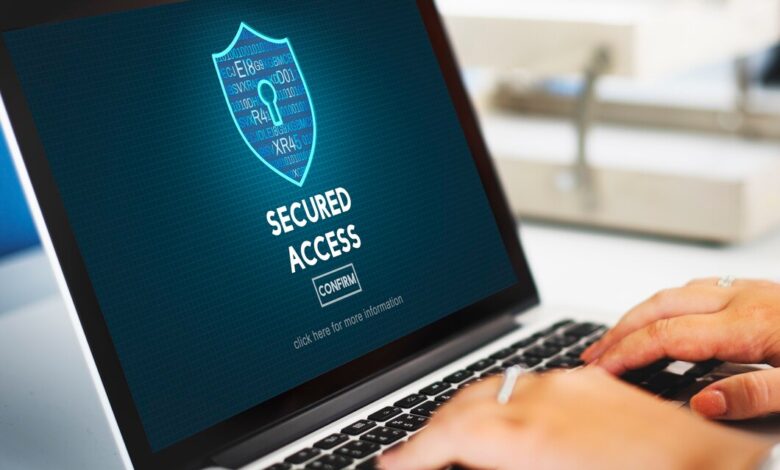10 Ways South African SMEs Can Enhance Online Security

In today’s digital landscape, South African small and medium enterprises (SMEs) face growing threats from cybercriminals targeting their valuable data and online operations. With the rise of e-commerce, remote work, and digital communication, protecting online security has become essential for businesses of all sizes. While SMEs may not have the resources of larger corporations, there are effective and affordable measures they can implement to safeguard their operations. Here are 10 ways South African SMEs can enhance their online security:
1. Implement Strong Password Policies
Weak passwords are one of the easiest entry points for cybercriminals. SMEs should enforce strong password policies, requiring employees to create complex passwords that combine upper and lowercase letters, numbers, and symbols. Passwords should also be changed regularly and should not be reused across different accounts. Encourage the use of password managers to securely store and generate unique passwords for each platform.
2. Enable Multi-Factor Authentication (MFA)
Multi-factor authentication (MFA) adds an extra layer of security by requiring users to provide two or more verification factors before gaining access to sensitive systems or data. This typically includes something the user knows (like a password) and something they have (like a mobile device for a one-time code). SMEs should enable MFA for all key accounts, particularly for email, financial platforms, and cloud services.
3. Regular Software Updates and Patching
Outdated software often contains vulnerabilities that can be exploited by hackers. SMEs should ensure that all operating systems, applications, and security software are updated regularly to patch any known security gaps. Automated updates can help keep systems secure without requiring constant manual intervention. It’s also crucial to update plugins and third-party applications.
4. Use Firewalls and Anti-Virus Software
Firewalls and anti-virus software provide essential protection against unauthorized access and malicious software. SMEs should invest in reputable security software and firewalls to protect their networks. Firewalls can act as a first line of defense, while anti-virus software helps detect and remove malware, ransomware, and other cyber threats.
5. Conduct Regular Cybersecurity Training
Human error is often the weakest link in a company’s security chain. Regular cybersecurity training can help employees recognize potential threats, such as phishing attacks, and understand best practices for keeping data secure. Employees should be trained to spot suspicious emails, links, or attachments and know how to report potential security incidents.
6. Back Up Data Regularly
Frequent data backups are critical in minimizing the impact of a cyberattack, such as ransomware. SMEs should implement an automated backup solution to regularly back up all critical business data, including customer information and financial records. Backups should be stored securely, ideally off-site or in the cloud, and tested regularly to ensure they can be restored when needed.
7. Use Secure Wi-Fi Networks
Public or unsecured Wi-Fi networks can expose businesses to cyber threats. SMEs should ensure that their office Wi-Fi networks are encrypted and password-protected. Employees should avoid connecting to unsecured public networks when handling sensitive business information. Consider using a virtual private network (VPN) to encrypt internet traffic when accessing company data remotely.
8. Limit Access to Sensitive Information
Not all employees need access to all company data. SMEs should adopt a policy of least privilege, which ensures that employees only have access to the information necessary to perform their roles. Implement role-based access control (RBAC) to limit access to sensitive systems, financial data, and customer information based on job responsibilities.
9. Develop an Incident Response Plan
Despite all precautions, cyberattacks can still happen. SMEs should develop a clear incident response plan outlining the steps to take in the event of a security breach. This plan should include how to contain the breach, who to notify (both internally and externally), and how to recover from the attack. Regularly review and test the plan to ensure it can be effectively executed during a real cyber event.
10. Work with Trusted IT Security Partners
Given the complexity of cybersecurity, SMEs can benefit from partnering with trusted IT security providers to manage their digital defenses. Managed service providers (MSPs) can offer a range of security services, including network monitoring, threat detection, and incident response, allowing SMEs to focus on their core business while ensuring their online security is maintained by experts.
Enhancing online security is critical for the survival and growth of South African SMEs. By adopting these best practices, SMEs can significantly reduce their risk of falling victim to cyberattacks. From implementing strong password policies and enabling multi-factor authentication to conducting employee training and working with trusted IT partners, these measures can help businesses protect their valuable data and maintain the trust of their customers in an increasingly digital world.


